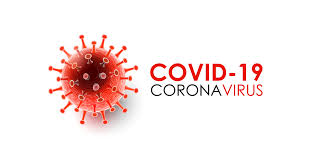2025 Mikla Lewis Grant - Gondwana Rainforest Trust
February 2026
For emergency rescue support 24/7 please call 1300 094 737

Updated 28th March
The situation with COVID-19 is changing rapidly. Currently, WIRES are operating normally and implementing plans to ensure we can continue to operate every day to assist sick, injured and orphaned wildlife.
We are following all government directives and taking precautionary measures advised by the Department of Health so we will keep everyone up to date on any short-term changes to our wildlife rescue service.
In light of the uncertainty we are facing with the outbreak of novel COVID-19 WIRES has made the difficult decision to postpone all Rescue and Immediate Care (RICC) workshops and face to face components of species courses scheduled until the end of April. It is possible the situation may escalate further and we will be monitioring the situation. The safety of our volunteers is a priority and we will continue to be guided by government directives. We will keep participants updated about postponed courses and as soon as it is safe they will be re-scheduled.
COVID-19 and WILDLIFE RESCUE
To keep safe at this time all community members and volunteers are advised to follow these hygiene procedures:
Some important things to note:
The CDC recommends the following in relation to contact with animals: “You should restrict contact with pets and other animals while you are sick with COVID-19, just like you would around other people. Although there have not been reports of pets or other animals becoming sick with COVID-19, it is still recommended that people sick with COVID-19 limit contact with animals until more information is known about the virus.”
Social Distancing Restrictions
Individual behaviour is a crucial factor in controlling the spread of COVID-19. Early self-isolation, seeking medical advice remotely (unless symptoms are severe) and personal social distancing are key. Social distancing helps slow the spread of viruses such as COVID-19 by reducing transmission between people, and minimising the number of people who may require isolation. It may also reduce unnecessary testing.
More information on COVID-19 with most up to date advice can be found via the below links:
• WHO
• US CDC
You can also call the National Coronavirus Health Information Line on 1800 020 080.
By following the advice given we can all do our bit to keep each other and wildlife safe.
Thank you for your support and understanding during this crisis.
#coronavirus #COVID-19 #wildliferescue
Stay in touch and get our regular rescue stories, WIRES updates and a free copy of our 15 Ways to Help Wildlife ebook
February 2026
February 2026
February 2026
February 2026
January 2026
January 2026